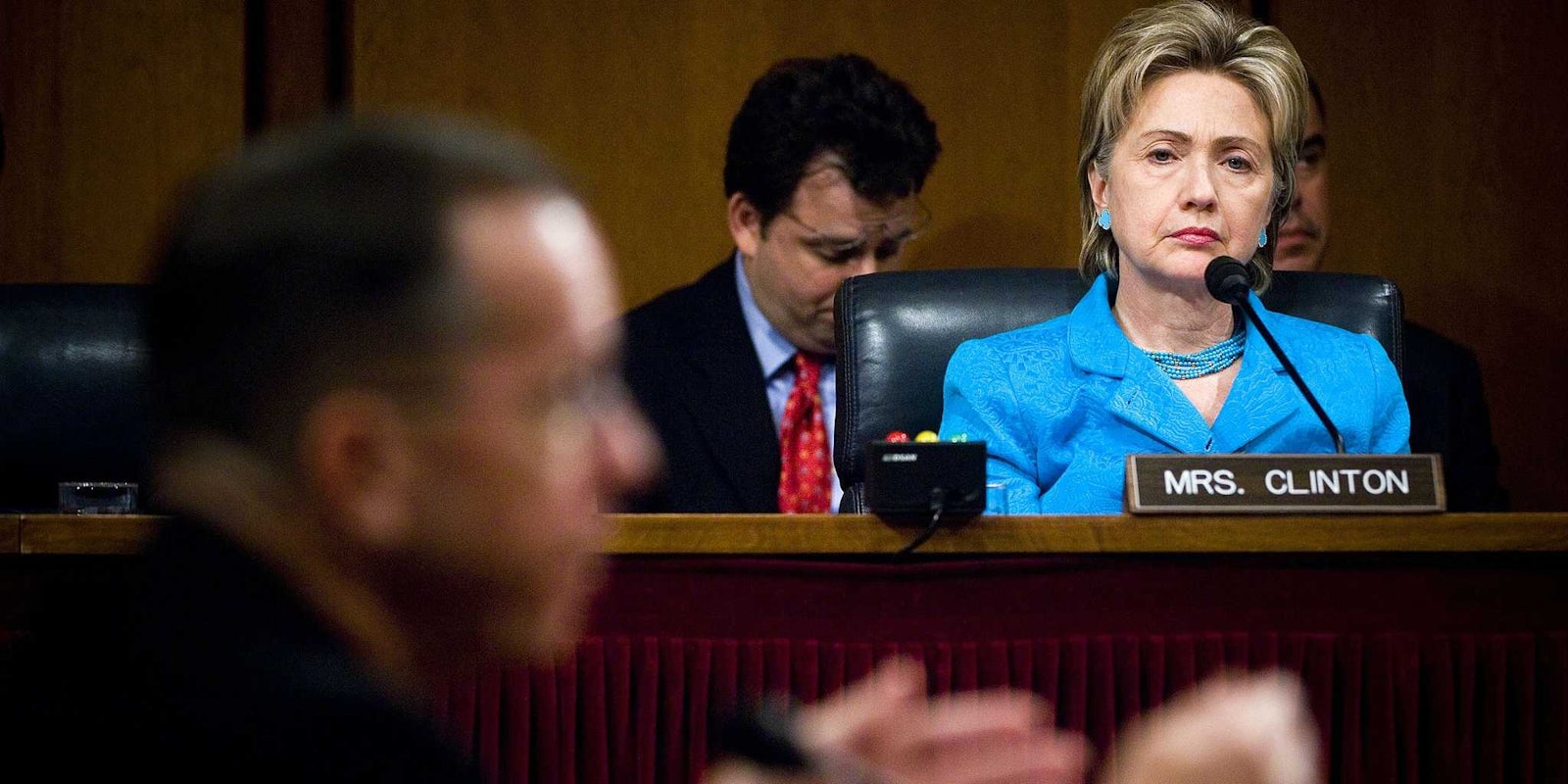Democratic presidential front-runner Hillary Clinton published a policy paper on Wednesday outlining her posture toward campaign finance reform. It evinces a strong focus on dark money and other problems with financial transparency.
The most arresting element of the policy is a commitment to supporting a constitutional amendment to overturn the Supreme Court ruling known as Citizens United which allowed the donation of much-higher amounts of money to candidates than previous, and made it much easier to give without being identified.
“Clinton supports amending the Constitution to allow Americans to establish common sense rules to protect against the undue influence of billionaires and special interests and to restore the role of average voters in elections,” reads the briefing.
Constitutional amendments are far from easy to pass and a president has no particular influence—outside of the “bully pulpit”—to do so.
Other measures to do away with Citizens United include a plan to appoint Supreme Court justices who agree with Clinton’s interpretation of the law regarding voting and election finance.
“Clinton will appoint Supreme Court justices who understand… that decisions like Citizens United, which upended campaign finance law, and Shelby County, which gutted the Voting Rights Act, are not good for America.”
Toward “ending secret, unaccountable money in politics,” Clinton favors measures to end or ameliorate dark money laws, including pushing for federal legislation and signing an executive order that would require all federal contractors to disclose campaign spending. She also writes that she will ask the Securities and Exchange Commission to create rules that will inspire transparency.
“Clinton believes that information about how corporate funds are being used to fuel political activity and influence elected officials is material to investment decisions and should be made available to shareholders.”
Finally, she announced her intention to create a “small donor matching system for presidential and congressional candidates.” She believes this will “incentivize small donors to participate in elections and candidates to spend more time engaging a broad, representative cross-section of constituents.”
Most of the plans, as currently outlined, are grand and broad. You have to wonder if they are actionable.
Dale Eisman, senior editor for Common Cause, believes the amendment will be the most difficult.
“It’s not easy,” he said. “It’s not supposed to be easy. It’s something we have taken on, because we believe you can’t depend on changes to the court to take care of this problem.”
We asked Robert Maguire, of the Center for Responsive Politics, if any aspect of Clinton’s plan jumped out. Under her plank outlining her strategy for uncovering secret money, it says: “She will also require disclosure of significant transfers between organizations and close other loopholes that allow individuals, corporations and others to hide their political spending.”
The problem with this is that all relevant transfers between “organizations”—whether they’re super PACs or 501(c) nonprofits—are disclosed already, said Maguire, either to the FEC, the IRS, or in some cases, both. But those transfers aren’t disclosed until long after the election in which they take place.
“So, if my reading is correct,” said Maguire, “and the issue is one of timing, then it looks like Clinton would have to change the tax laws that govern the filing schedules for 501(c) organizations, which probably wouldn’t be too easy.”
Eisman identified the state-by-state public election financing program as the most doable. There are already some states trying out matching funds, such as Connecticut, Arizona, and Maine. Some matching is one-to-one, but it can run much higher; six-to-one public moneys to donations, for instance.
Such a program “allows a candidate to run a competitive and successful race. Once they see it can work, it becomes very popular with the candidates. For those who don’t take advantage of it, that’s something that voters can take into account. Is a candidate more concerned with small donors like me, or are they devoted to big money?”
If Clinton is elected, and she is devoted to making the changes she outlines in her brief, then she’s got a rough row to hoe. If politics is the art of the possible, and you desire to make the unlikely a part of that, perhaps it also has to be a triumph of faith over reason or imagination over experience.
Clinton did not immediately respond to our request for comment.
Photo via Chad J. McNeely/Wikimedia (public domain)


